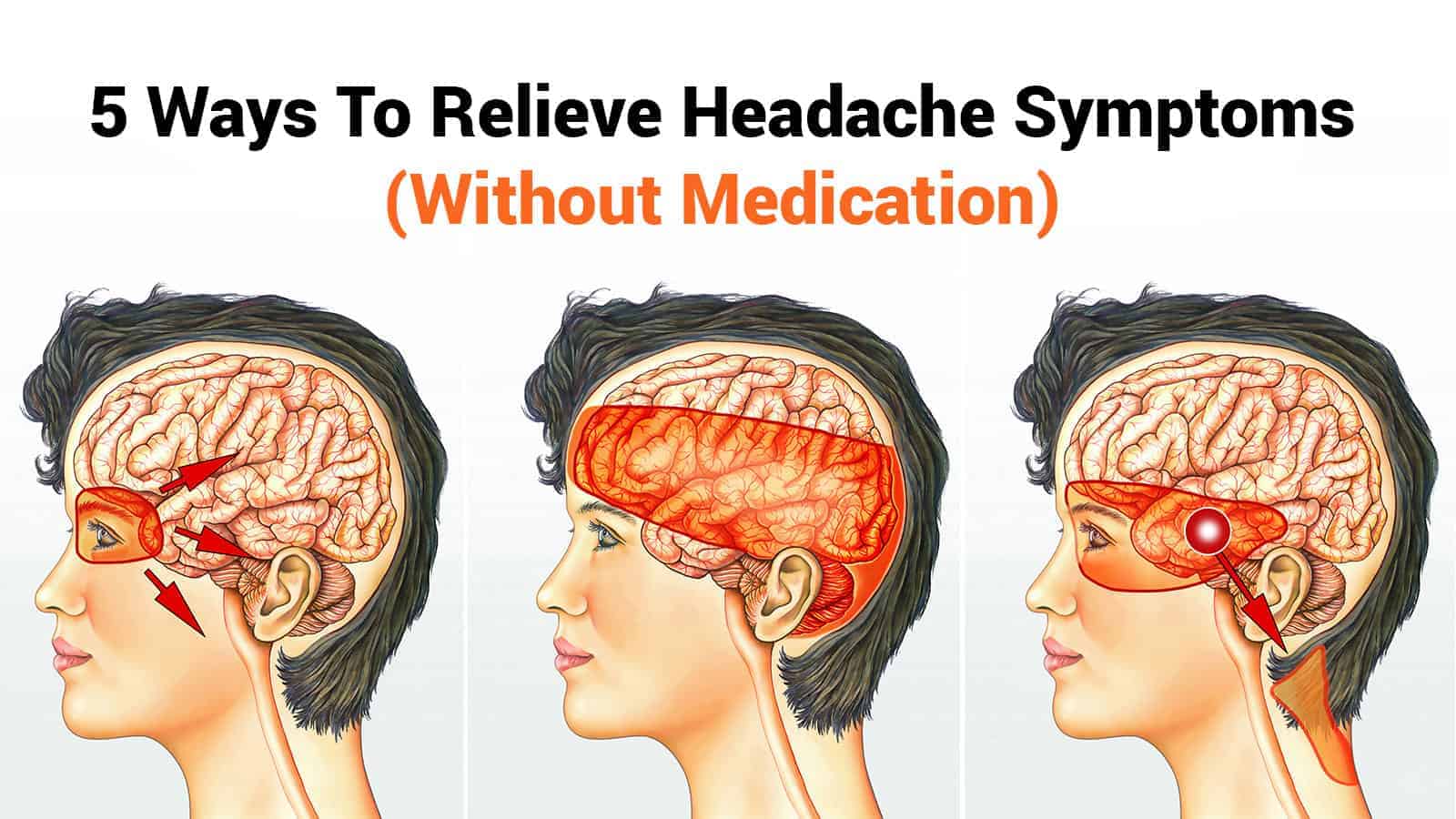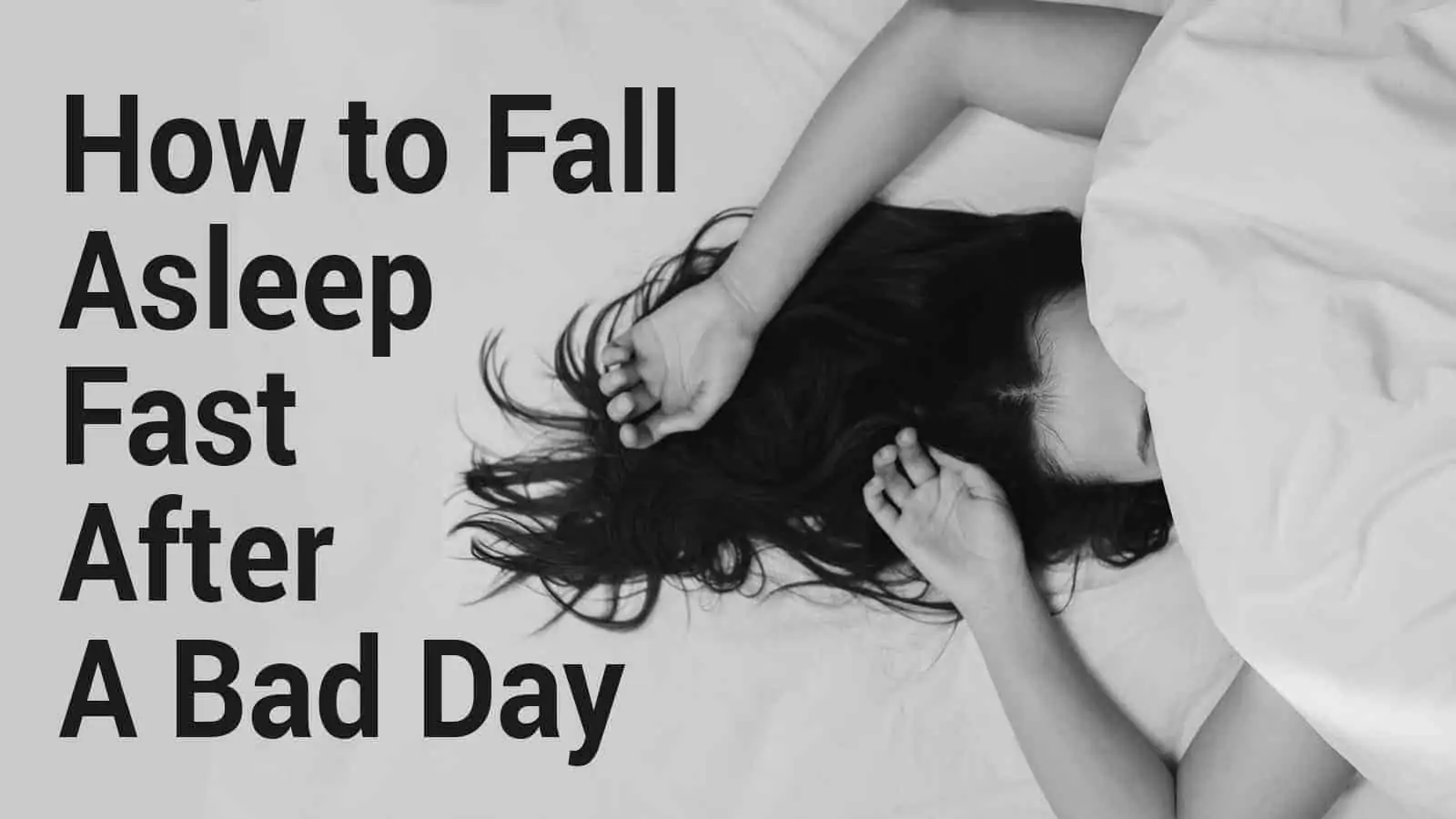Headache symptoms can be very disruptive to everyday life. The pain from them can ruin your concentration, decrease productivity, and lead to generally lowered positive thinking.
Sadly, headaches are also widespread, and almost everyone will deal with them at some point in their lives. If you have frequent headaches, then that’s even worse!
Thankfully, some methods can be used to reduce their severity naturally. Here are five ways to relieve headaches symptoms without medication!
1. Lifestyle Changes
This info should come as no surprise – many people are living incredibly unhealthy lifestyles. As such, making sure that you are engaging in a healthy lifestyle may sometimes be enough to resolve any headache symptoms you have. Here are a few ideas to get started with:
· Exercise Regularly
It’s the last thing you may want to consider, but exercise gives positive results with headaches. Studies have proven that cycling indoors for just 40 minutes per day, three times a week, actually beats out typical relaxation techniques in efficacy. If cycling isn’t feasible for you, a great way to start will be to start walking more often to your destinations.
· Learn Relaxation Methods
Sometimes, the cause of your headaches is actually due to the tension you are holding in your body. Methods like yoga, meditation, or even basic stretches may be more than enough to ease your headache. Positive thinking, when assaulted by a headache, might also help. If all else fails, consider getting a professional massage, or consult your doctor about physical therapy for a more direct approach.
· Get Enough Sleep
One of the symptoms of sleep deprivation is an increased severity and frequency of headaches. Studies prove that those who sleep for only six hours or less often develop worse headaches. That said, the inverse isn’t necessarily better – too much sleep can also cause the same thing. Therefore, it’s best to keep your rest between 7 to 9 hours long for the best results.
2. Watch What You Drink
The human body is made up of about 60-70% water. As you can imagine, this means that dehydration can cause all sorts of imbalances in the body – with headaches being one of them. Here are some ways to fix that problem:
· Drink Enough Water
One of the most significant symptoms of chronic dehydration is headaches – a fact that has been proven and backed by multiple studies. And it’s not just headaches you’ll get – dehydration also causes irritability and impairs concentration, which can contribute to your headache.
A relieving positive is that drinking water can resolve most migraines and tension headaches within 3 hours. To make sure that doesn’t happen in the first place, though, you should make sure to always keep hydrated throughout the day.
· Drink Herbal Tea
If the taste of plain water isn’t your thing, you might wanna consider herbal teas instead. In addition to keeping you hydrated, herbal teas can also contain natural compounds that may ease your headaches.
For example, calming teas like chamomile, peppermint, and lavender may relax you enough to undo tension headaches.
For a more direct approach, a 2013 study suggests that ginger tea (i.e., ginger powder and warm water) can ease migraines in a way that is similar to medicines meant for migraines. So perhaps that may be of help!
· Drink More Caffeine
Everyone who has a coffee addiction knows better than to go cold turkey – the headaches you get afterward aren’t worth it. Withdrawal symptoms aside, it turns out that caffeine provides benefits that relieve headaches.
For example, it constricts blood vessels, improves one’s mood, and increases alertness – all of which can make it easier to bear a headache.
Caffeine in coffee and tea can even boost the effectiveness of painkillers like ibuprofen and acetaminophen, which may be just what you need. So consider adding some caffeine into your life – but make sure to watch your intake!
· Limit Alcohol Consumption
A drink or two isn’t going to cause headaches in most people, but about one-third of headache sufferers might find that alcohol is a migraine trigger for them. This is because alcohol is a vasodilator – in other words, it widens blood vessels and increases blood flow.
This can often cause all sorts of cluster and tension headache symptoms. This isn’t even taking into account that alcohol is a diuretic, which can dehydrate you and worsen your headaches. In light of all this, just stick to a drink or two at most.
3. Use Tried-and-True Relief Methods
Sometimes, a painkiller isn’t necessary. Consider taking into account these ideas when trying to relieve your headaches:
· Use A Cold Compress
Cold or frozen compresses can help by constricting blood vessels and reducing inflammation – all of which are associated with headaches. Placing them on the neck can also slow down nerve conduction, dulling the pain and offering relief.
A study has also proven that cold gel pack applied to the head can also significantly reduce the pain of a migraine – though there’s no guarantee this might work for you.
Either way, there’s no harm in trying it – just fill any waterproof bag with ice and water and apply it to your head, temples, or back of the neck for relief. Remember to wrap the bag in a towel to prevent ice burns!
· Turn Down The Lights
Sometimes, bright or flickering lights can act as a migraine trigger. The sources can range from your electronic screens to the sun outside. If you notice that this is the case for you, try wearing sunglasses when outdoors and use blackout curtains at home.
Attaching anti-glare screens to your electronics may also be helpful. If you’re willing to invest in it, consider swapping over to daylight-spectrum bulbs as well.
· Ease Any Pressure
Watch out for headaches caused by external compression. Tight headbands and swimming goggles can often cause headaches. Even wearing hats can be a source of headaches, so take those off as well.
If you also wear tight ponytails, try loosening them or undoing them entirely – a study found that relaxing one’s hair made the participants’ headaches disappear. It’s possible that this may be the culprit for your headaches.
 4. Watch What You Eat
4. Watch What You Eat
Some foods may affect you negatively and cause all sorts of problems with your body. One of those things includes headaches. Here are some examples of what to look into to help with your headaches:
· Avoid High-Histamine Foods
Histamine is found naturally in many foods and is vital for the regulation of several essential systems in the body. Unfortunately, studies suggest that some people are sensitive to histamine, and exposure triggers their migraines.
Others lack the enzyme necessary for breaking it down and can’t remove excess histamines from their body – thus resulting in headaches.
Try reducing or eliminating high-histamine foods from your diet to relieve yourself of headaches.
· Avoid Nitrites and Nitrates
Commonly found in foodstuffs like sausages and bacon, nitrites and nitrates are food preservatives meant to prevent bacterial growth. While they help keep food fresh, they also can be a headache trigger for some people.
This is because nitrites expand your blood vessels, similarly to alcohol. This increase in blood flow may be the cause of headaches. As such, try to avoid processed meats and nitrate-related foodstuffs in your diet.
· Make Sure You Don’t Have A Food Intolerance
Food allergies are noticeable and demand immediate attention – by contrast, food intolerances tend to slip under the radar. This is especially so if they’re our favorites, and we’re biased towards thinking that it’s just a coincidence.
Unfortunately, all the positive thinking in the world won’t let you avoid the truth. If your headaches tend to turn up after meals, it might be a good idea to start recording what ingredients were in your dish – you might find your cause that way.
5. Engage Your Sense Of Smell
Studies have proven that there is a strong connection between the olfactory senses and your immune system. At the very least, the right scent might help relax you and ease your tension headaches. Here are a few options to consider:
· Lavender Essential Oil
Popular for its soothing properties and alluring fragrance, lavender essential oils can also help alleviate headaches.
To take advantage of this yourself, put a few drops of lavender essential oil on some tissue and waft the scent to your nose or add two drops to 2 cups of boiling water and breathe in the scented steam.
You could alternatively mix about 2-3 drops with a tablespoon of olive or almond oil and use that as a massage oil for your forehead instead.
· Peppermint Essential Oil
Peppermint contains menthol, which gives it that great spicy scent. Menthol can also be used to help regulate blood flow and may help relax clogged blood vessels. This, in turn, may help relieve headaches.
And it’s likely not a placebo effect too – when compared to a placebo, a study found that peppermint oil helped in easing tension headache symptoms.
Try inhaling the scent in a dark, cold room, or mix three drops with a tablespoon of almond oil and use the oil to massage the back of your neck or your temples. You can also try crushing peppermint leaves and apply them directly to your forehead.
· Avoid Strong Smells
Some of you may find that intense aromas and scents worsen your headaches – and common culprits tend to be cleaning products or perfume. You’re not alone in this – a study has found that migraine or tension headache sufferers are hypersensitive to scents and have their episodes often triggered by strong odors.
This condition is called osmophobia, and it is prevalent among sufferers of chronic migraines. If you notice a correlation between smells and headaches for you, avoiding sources of strong scents may help reduce migraine risks.
Final Thoughts Ways To Relieve Headache Symptoms
It’s always great when you’re able to manage a problematic everyday issue in a natural and non-intrusive way, and these methods can all help relieve headaches without the use of pills or prescriptions.
Of course, if your headache symptoms are chronic, severely affecting daily life, or giving you a very, very difficult time, you should consider medication as an option for managing them.
All in all, speak to a doctor about your options.



















